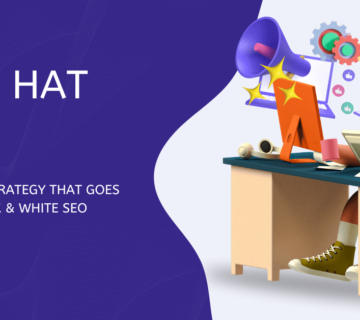As artificial intelligence technology advances, there has been growing concern that AI will eventually replace human workers in many industries, including search engines. In particular, some people worry that chatbots like ChatGPT will eventually replace Google search as the primary way people find information online.
However, the reality is that ChatGPT is not designed to replace Google search. Instead, it is meant to complement it by providing a more conversational and personalized experience for users.
First, it’s important to understand what ChatGPT is and how it works. ChatGPT is a chatbot built on top of OpenAI’s natural language processing technology. It can “converse” with users in natural language and answer a wide range of questions on a variety of topics. ChatGPT is trained on a massive dataset of text from the internet, which allows it to understand and respond to a wide range of questions.
One of the key benefits of ChatGPT is its conversational nature. Users can ask questions in natural language, rather than having to construct a query using specific keywords. This can make it easier and more natural to get the information you’re looking for. ChatGPT can also learn from previous conversations, allowing it to provide more personalized responses over time.
However, despite these benefits, ChatGPT is not designed to replace Google search. There are a few key reasons for this.
First, Google search is still the most efficient way to find information on the internet. While ChatGPT can provide a more conversational and personalized experience, it can’t match the speed and efficiency of Google search when it comes to finding specific pieces of information. If you’re looking for a quick answer to a question, Google search is still the way to go.
Second, Google search is constantly evolving and improving. Google has invested heavily in machine learning and natural language processing, and it continues to refine its algorithms to provide better results. While ChatGPT is also constantly improving, it’s unlikely that it will ever be able to match Google’s scale and resources.
Finally, there are some limitations to what ChatGPT can do. While it can answer a wide range of questions, it’s not always the best tool for the job. For example, if you’re looking for a specific product to buy, Google search is likely to be more effective than ChatGPT. Similarly, if you’re looking for a detailed analysis of a complex topic, a specialized search engine or research database may be more appropriate.
In short, while ChatGPT is a powerful tool for finding information and answering questions, it’s not designed to replace Google search. Instead, it complements Google search by providing a more conversational and personalized experience for users.
So what are some of the benefits of using ChatGPT in addition to Google search?
First, ChatGPT can be particularly useful when you’re looking for information in a conversational context. For example, if you’re trying to plan a trip and want to ask a series of questions about different destinations, ChatGPT can provide a more natural and engaging experience than simply searching for each piece of information separately.
Second, ChatGPT can be a great tool for learning. Because it’s designed to provide natural language responses, it can be particularly helpful for people who are new to a topic and aren’t sure how to ask the right questions. ChatGPT can help guide users through the learning process and provide personalized responses based on their level of knowledge.
Finally, ChatGPT can be a useful tool for customer service and support. Many companies are now using chatbots like ChatGPT to provide more personalized and efficient support to customers. By allowing users to ask questions in natural language and providing personalized responses, chatbots can help improve the customer experience and reduce the workload on human support staff.
In conclusion, ChatGPT is a powerful tool that offers a more conversational and personalized way to find information and answer questions. However, it’s not designed to replace Google search. Instead, it complements Google search by offering a different type of experience for users.
One potential downside of chatbots like ChatGPT is that they can sometimes provide inaccurate or incomplete information. This can be a problem if users rely too heavily on chatbots for information without double-checking the information they receive. However, this is also true of Google search, and it’s always a good idea to fact-check any information you find online.
Another concern is that chatbots like ChatGPT could be used to spread misinformation or propaganda. This is a legitimate concern, and it’s important to ensure that chatbots are designed with safeguards to prevent this from happening. However, this is also true of any technology that allows people to communicate online, and it’s up to individuals and organizations to be responsible and ethical in their use of these tools.
Overall, the rise of chatbots like ChatGPT represents an exciting new development in the world of search and information retrieval. While they may not replace Google search, they offer a different type of experience that can be more engaging, personalized, and efficient in certain contexts. As technology continues to advance, it’s likely that chatbots will become an increasingly important part of our online lives, and we can expect to see more and more innovative applications of this technology in the years to come.
Rahul Tripathi is a seasoned Digital Marketing Expert from India with over 14 years of industry experience. He holds a Bachelor of Commerce from Gujarat University and a Postgraduate Diploma in Digital Marketing from GTU.
Rahul specializes in driving business growth through data-driven strategies that generate high-quality leads, boost sales, and maximize ROI. With a deep understanding of SEO, performance marketing, and brand positioning, he is passionate about helping businesses enhance their online visibility and build a lasting digital presence.





